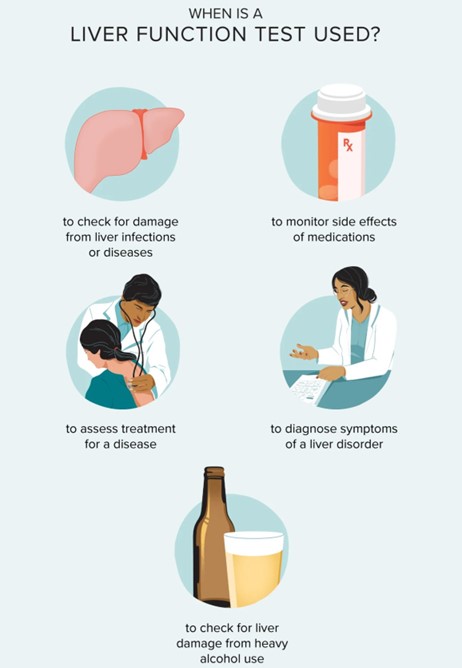A nurse is caring for a client who has lung cancer and is receiving combination chemotherapy with cisplatin and etoposide. Which of the following interventions should the nurse implement to prevent nephrotoxicity from cisplatin?
Administer mannitol as prescribed before cisplatin infusion.
Monitor serum creatinine and blood urea nitrogen levels daily.
Encourage fluid intake of at least 3 L per day during treatment.
All of the above.
The Correct Answer is D
Choice D reason:
These are all interventions that can prevent nephrotoxicity from cisplatin, which is a potent and valuable chemotherapy drug that can cause kidney damage or failure. Nephrotoxicity is one of the most serious and doselimiting adverse effects of cisplatin, which can affect up to 30% of patients. Nephrotoxicity is caused by the accumulation of cisplatin in the renal tubular cells, leading to cell injury, inflammation, and ischemia³.
Choice A reason:
Administering mannitol as prescribed before cisplatin infusion can prevent nephrotoxicity by increasing urine output and reducing the concentration of cisplatin in the kidney. Mannitol is an osmotic diuretic that draws water from the extracellular space into the tubular lumen, thereby increasing urine volume and flow rate. Mannitol can also scavenge free radicals and reduce oxidative stress induced by cisplatin⁴.
Choice B reason:
Monitoring serum creatinine and blood urea nitrogen levels daily can prevent nephrotoxicity by detecting early signs of renal impairment and adjusting the dose of cisplatin accordingly. Serum creatinine and blood urea nitrogen are markers of kidney function that reflect the glomerular filtration rate (GFR). An increase in these levels indicates a decrease in GFR and a loss of kidney function. The dose of cisplatin should be reduced or withheld if serum creatinine or blood urea nitrogen levels rise above a certain threshold⁴.
Choice C reason:
Encouraging fluid intake of at least 3 L per day during treatment can prevent nephrotoxicity by maintaining adequate hydration and preventing dehydration. Hydration is essential for preventing cisplatininduced renal toxicity, as it dilutes the concentration of cisplatin in the kidney and enhances its elimination. Dehydration can increase the risk of nephrotoxicity by reducing renal blood flow and causing tubular obstruction by uric acid crystals. Fluid intake can be oral or intravenous, depending on the patient's condition⁴.
Nursing Test Bank
Naxlex Comprehensive Predictor Exams
Related Questions
Correct Answer is A
Explanation
Choice A reason:
Liver function tests should be monitored for adverse effects of imatinib, as this drug can cause hepatotoxicity and liver failure in some patients³⁴. These are serious side effects that can affect the liver's ability to metabolize drugs and toxins.
Choice B reason:
Serum electrolytes are not directly affected by imatinib, as this drug does not cause significant changes in sodium, potassium, calcium, or magnesium levels³. However, electrolyte imbalances may occur due to other factors such as dehydration, diarrhea, vomiting, or kidney problems.
Choice C reason:
Coagulation studies are not directly affected by imatinib, as this drug does not cause significant changes in prothrombin time, partial thromboplastin time, or international normalized ratio³. However, bleeding disorders may occur due to other factors such as thrombocytopenia, anemia, or vascular damage.
Choice D reason:
Liver function tests are the only laboratory tests that should be monitored for adverse effects of imatinib, as this drug can cause serious liver damage in some patients. The other tests are not directly affected by imatinib, but may be influenced by other factors or conditions. The nurse should also monitor for other signs and symptoms such as nausea, vomiting, diarrhea, rash, edema, fatigue, infection, etc. The nurse should report any abnormal findings to the doctor and intervene as needed.

Correct Answer is D
Explanation
Choice A reason:
Epoetin alfa (Epogen) is a drug that stimulates the production of red blood cells in the bone marrow, not platelets⁴. It is used to treat anemia caused by chemotherapy, chronic kidney disease, or other conditions.
Choice B reason:
Filgrastim (Neupogen) is a drug that stimulates the production of white blood cells in the bone marrow, not platelets⁴. It is used to prevent or treat neutropenia caused by chemotherapy, bone marrow transplant, or other conditions.
Choice C reason:
Sargramostim (Leukine) is a drug that stimulates the production of white blood cells and red blood cells in the bone marrow, not platelets⁴. It is used to prevent or treat neutropenia caused by chemotherapy, bone marrow transplant, or other conditions.
Choice D reason:
Oprelvekin (Neumega) is a drug that stimulates the production of platelets in the bone marrow⁴. It is used to prevent or treat thrombocytopenia caused by chemotherapy. It works by mimicking the action of thrombopoietin, a hormone that regulates platelet development.

Whether you are a student looking to ace your exams or a practicing nurse seeking to enhance your expertise , our nursing education contents will empower you with the confidence and competence to make a difference in the lives of patients and become a respected leader in the healthcare field.
Visit Naxlex, invest in your future and unlock endless possibilities with our unparalleled nursing education contents today
Report Wrong Answer on the Current Question
Do you disagree with the answer? If yes, what is your expected answer? Explain.
Kindly be descriptive with the issue you are facing.
